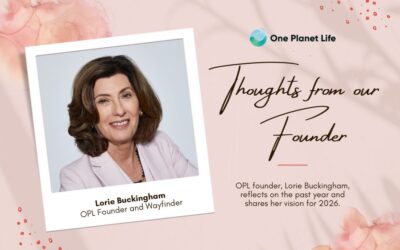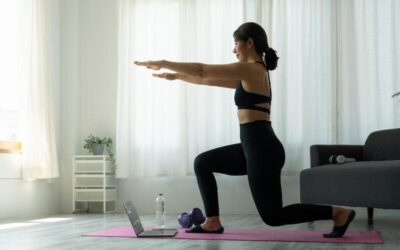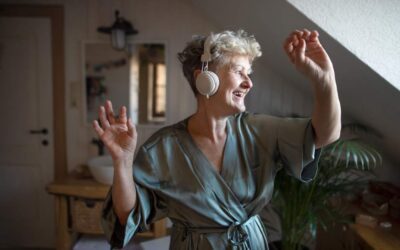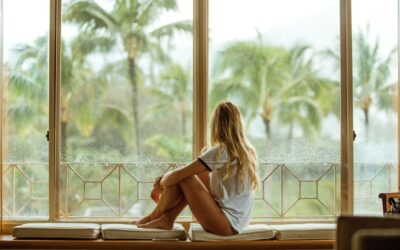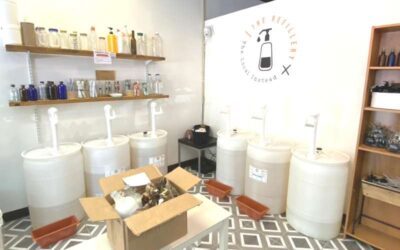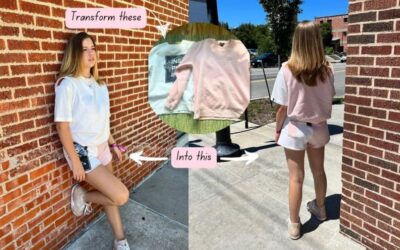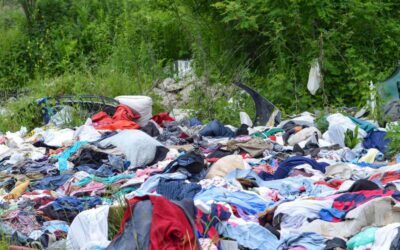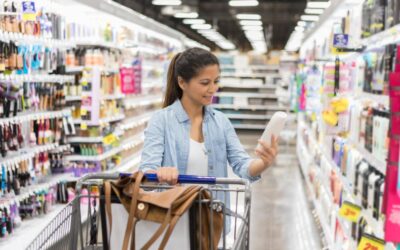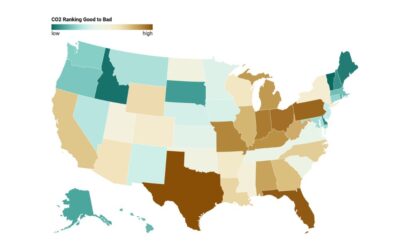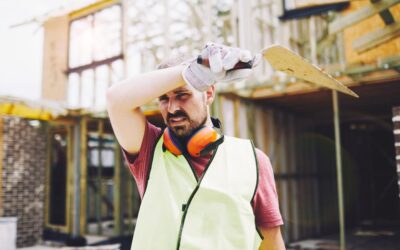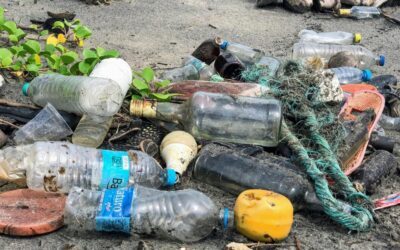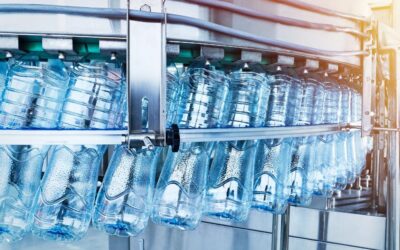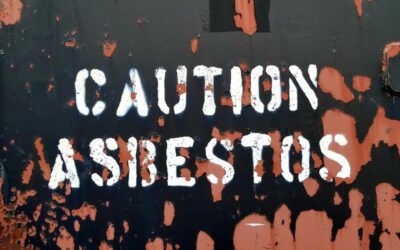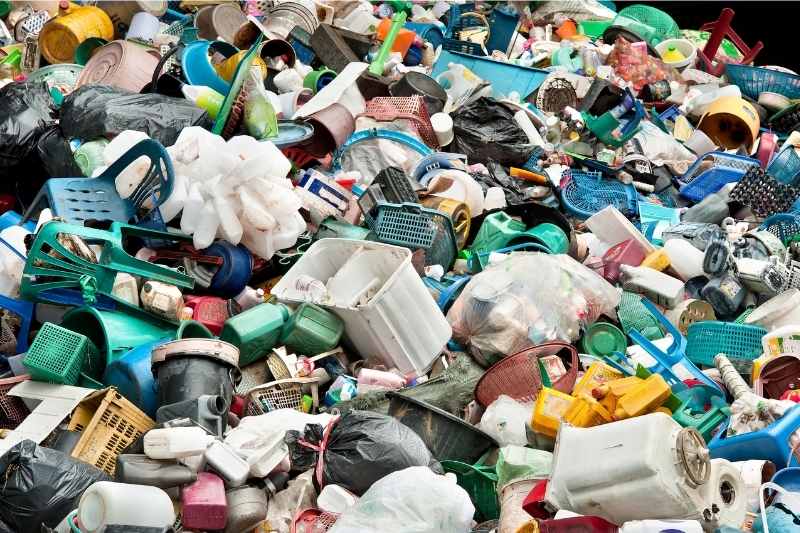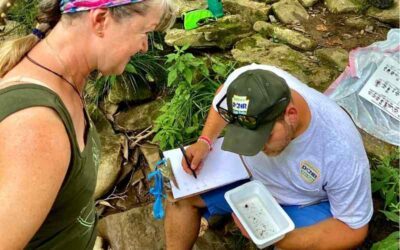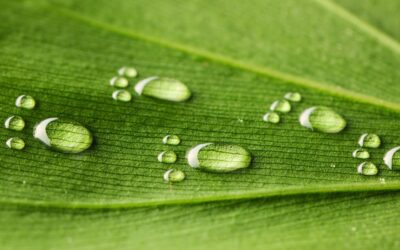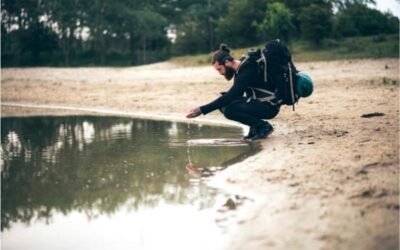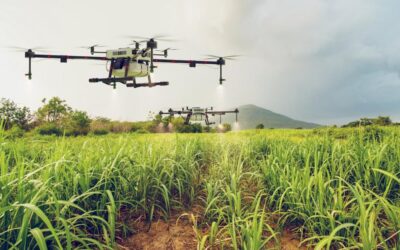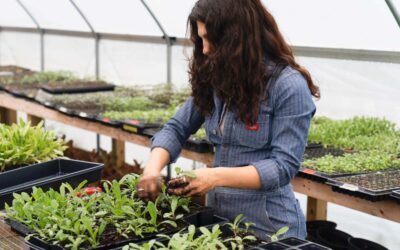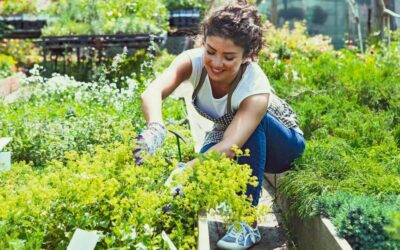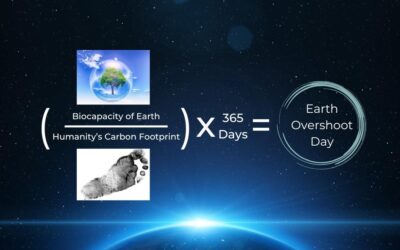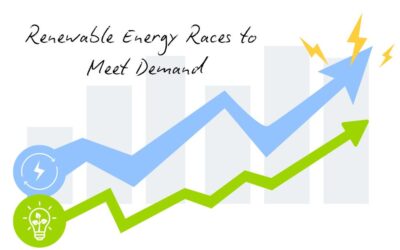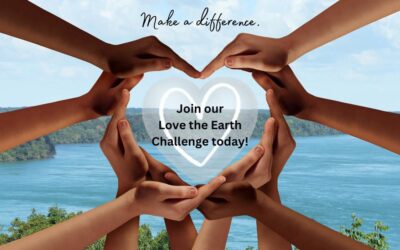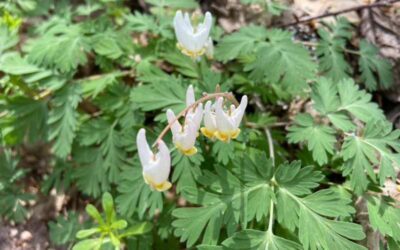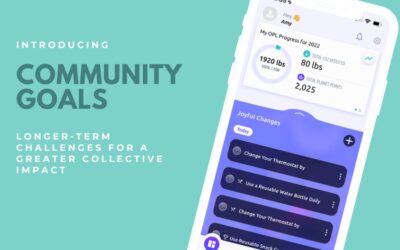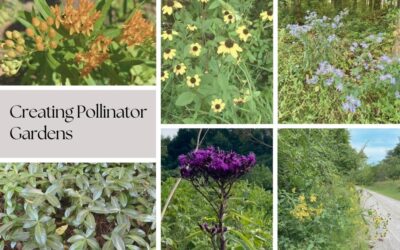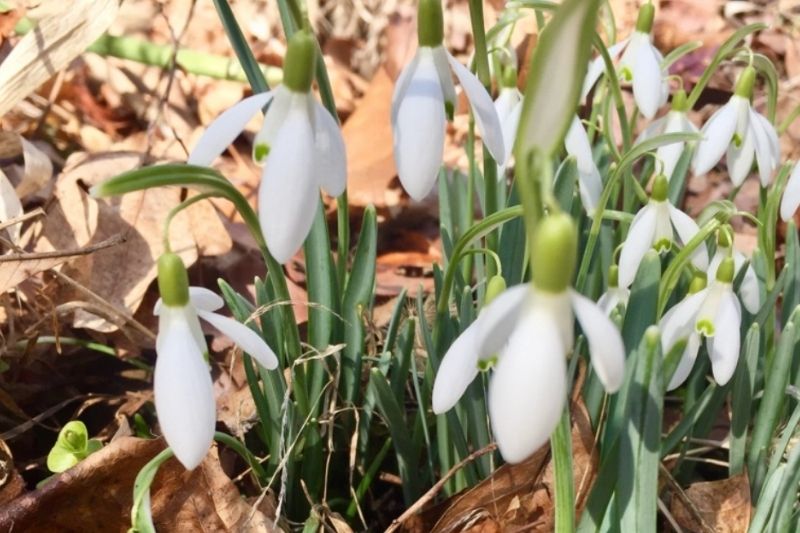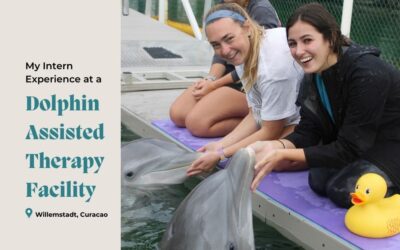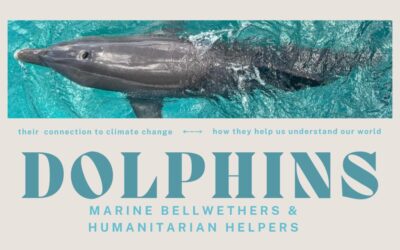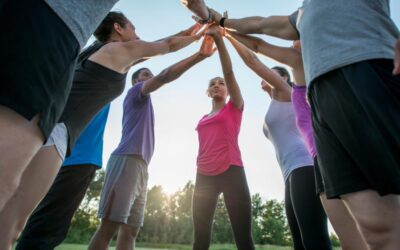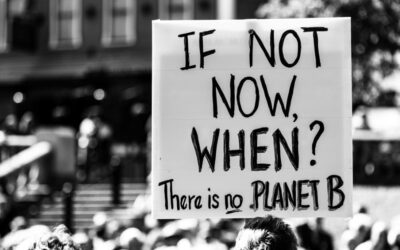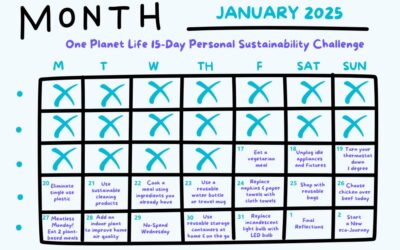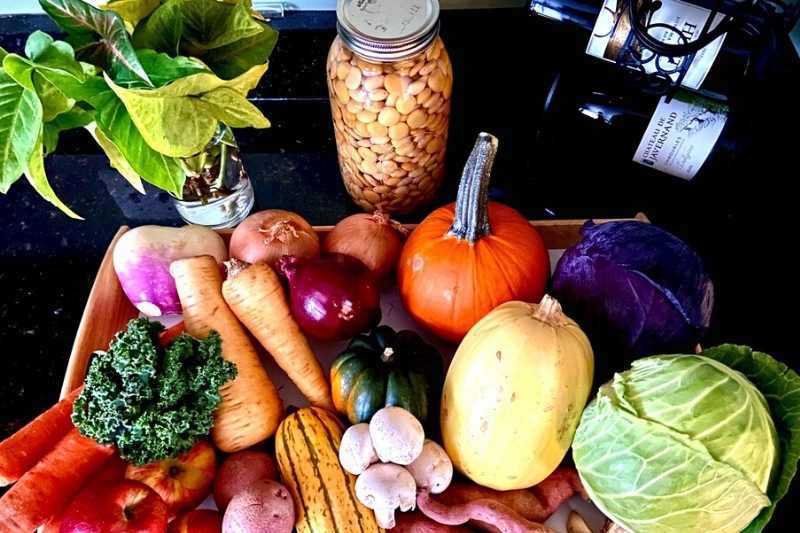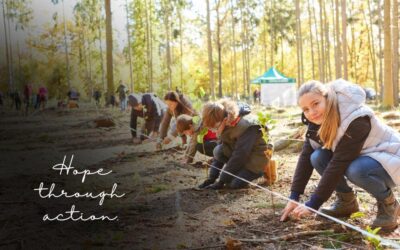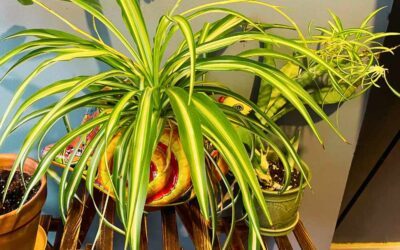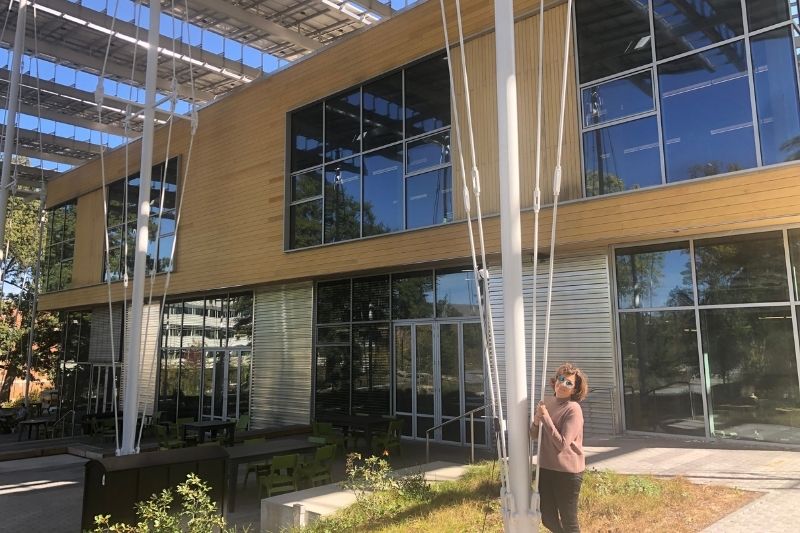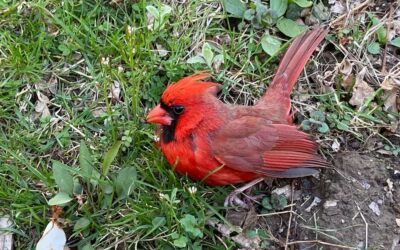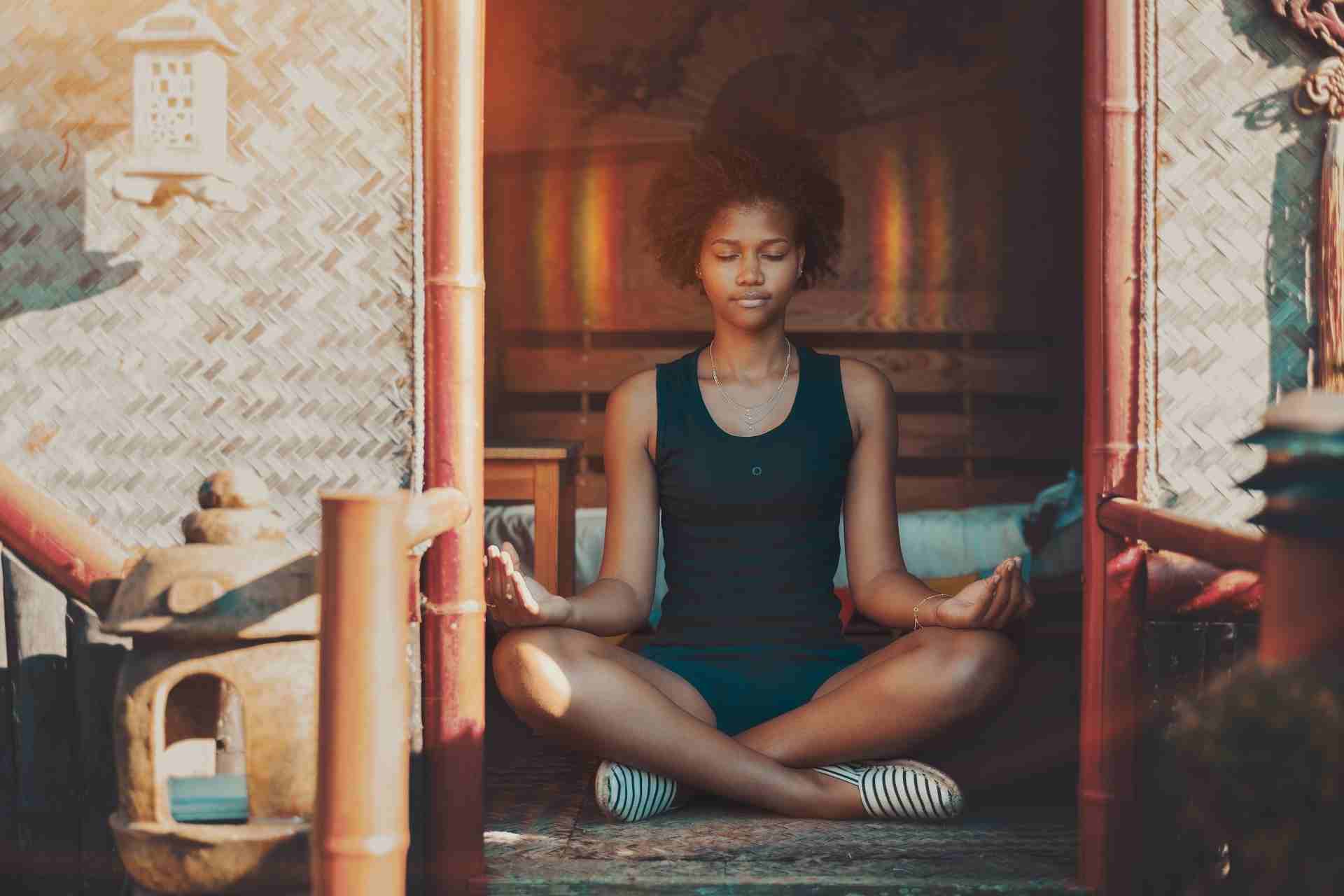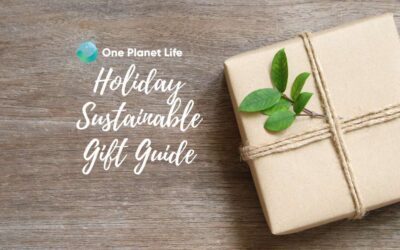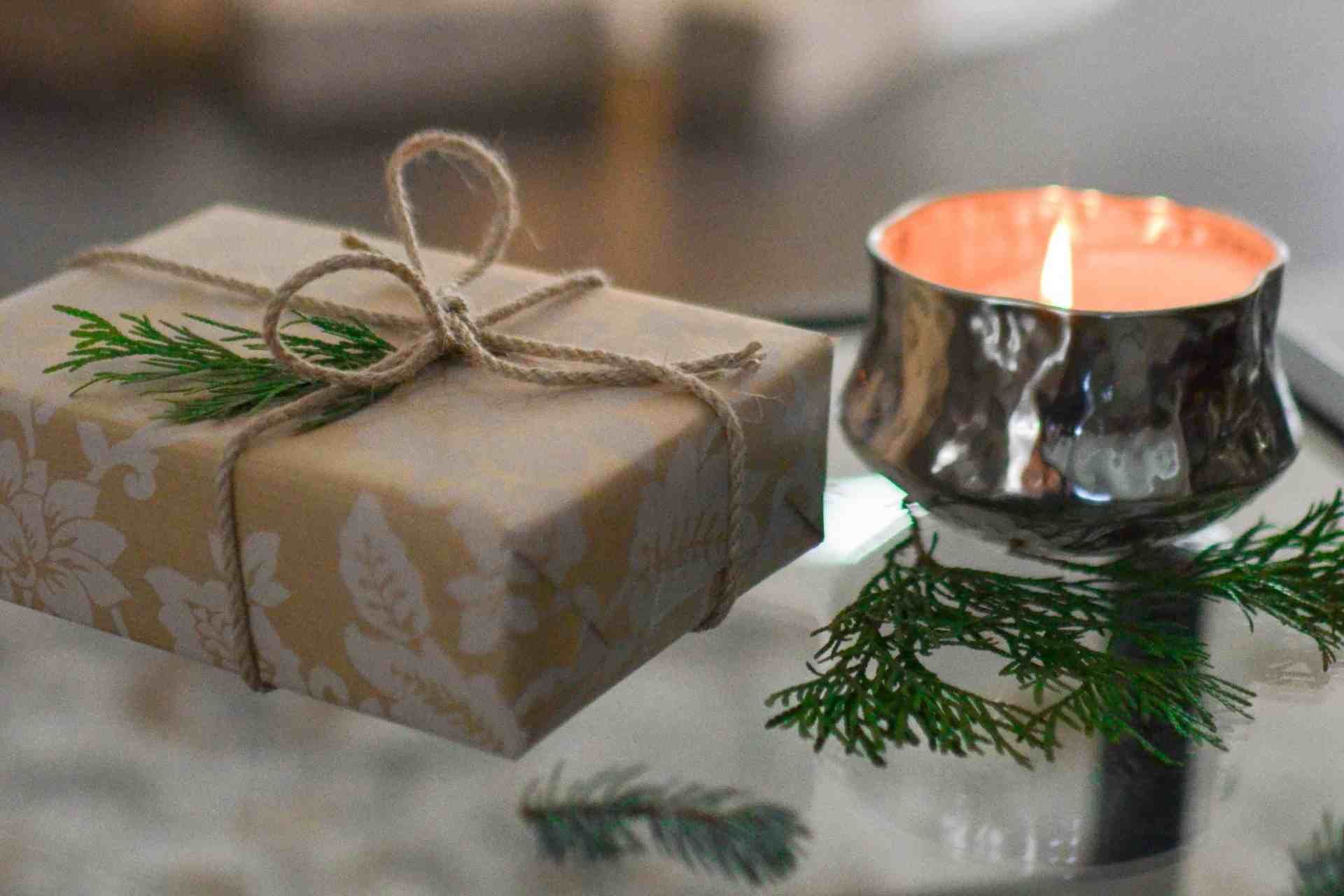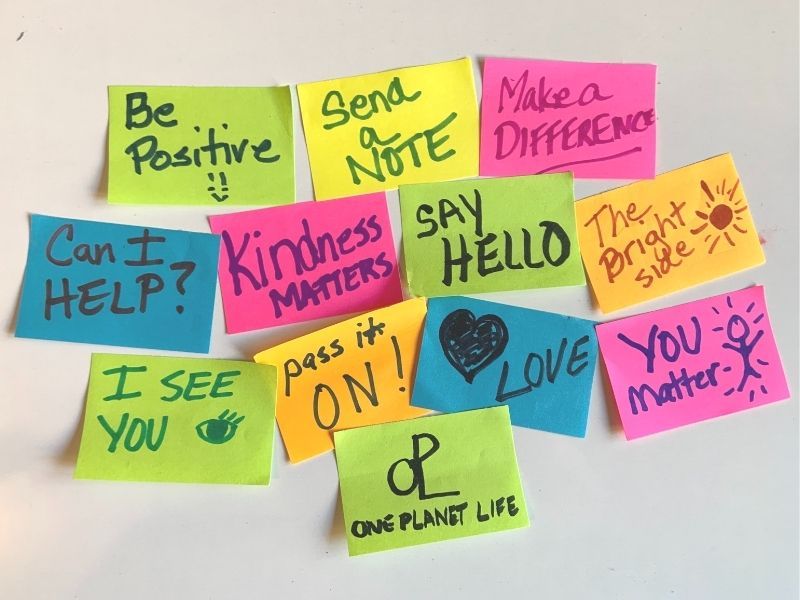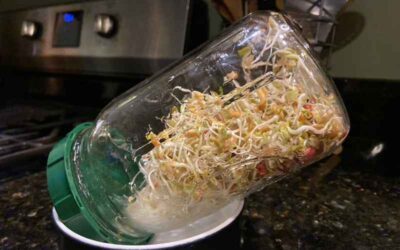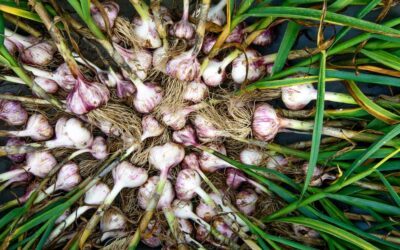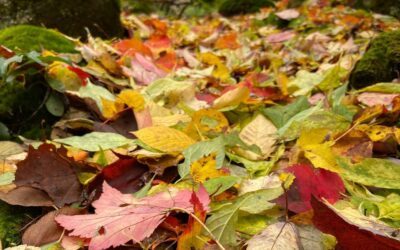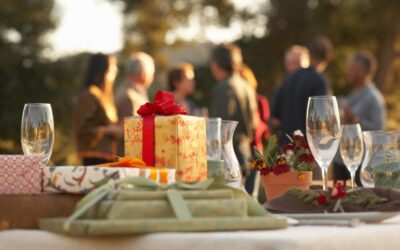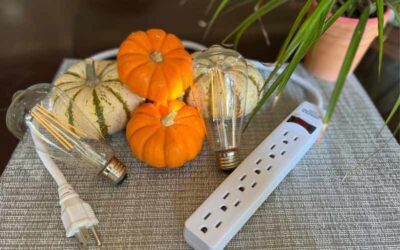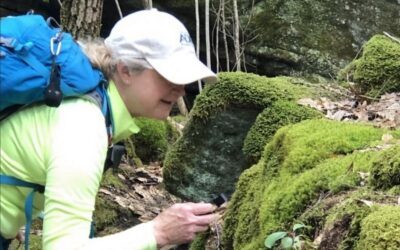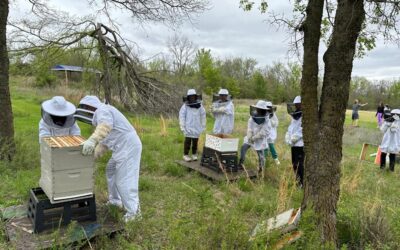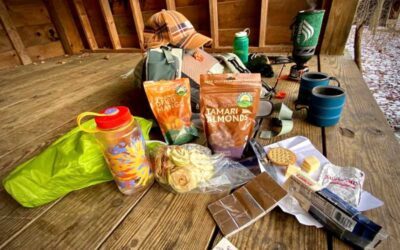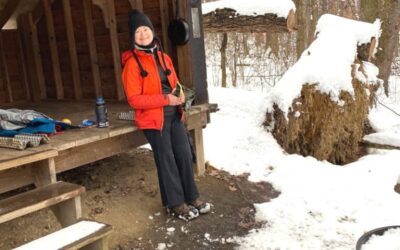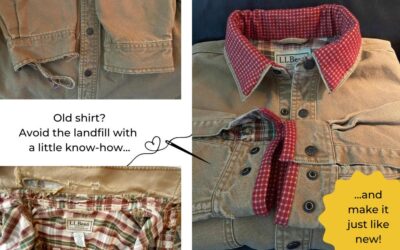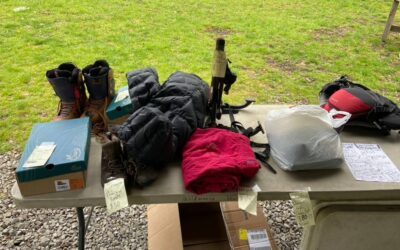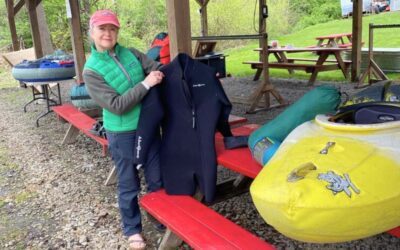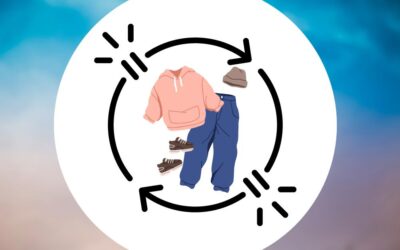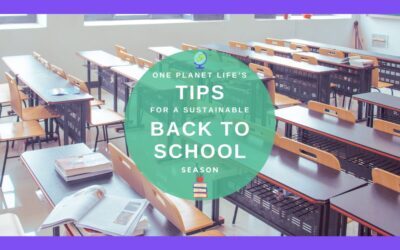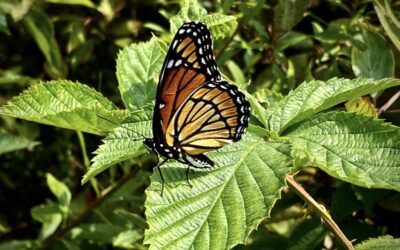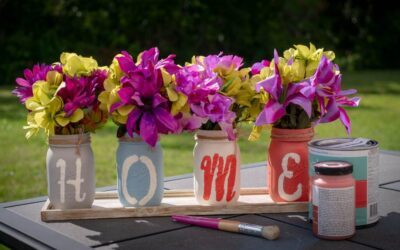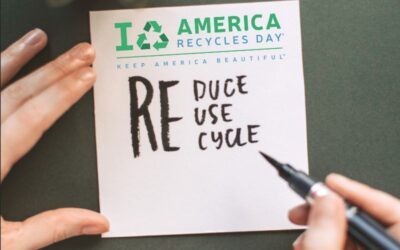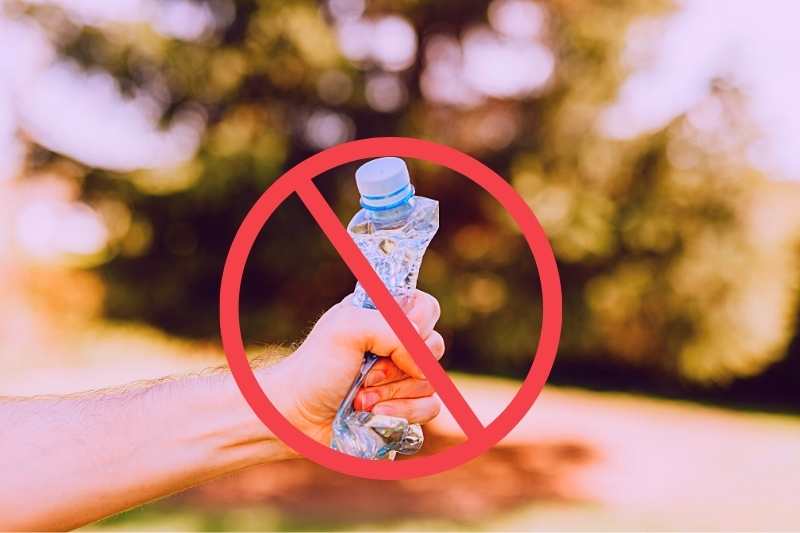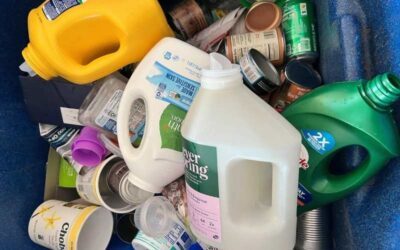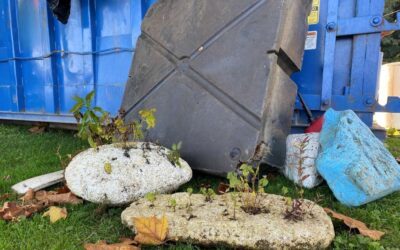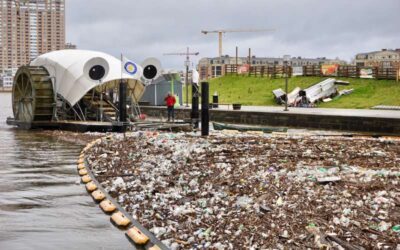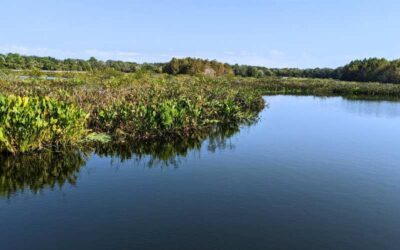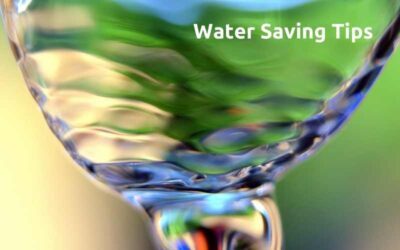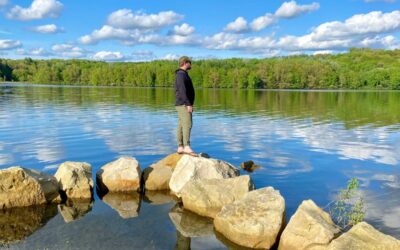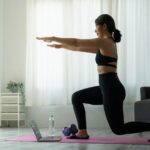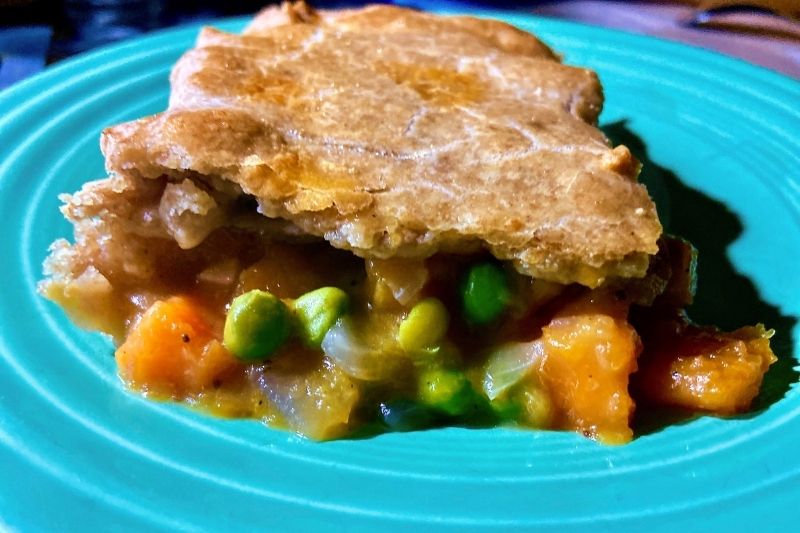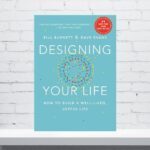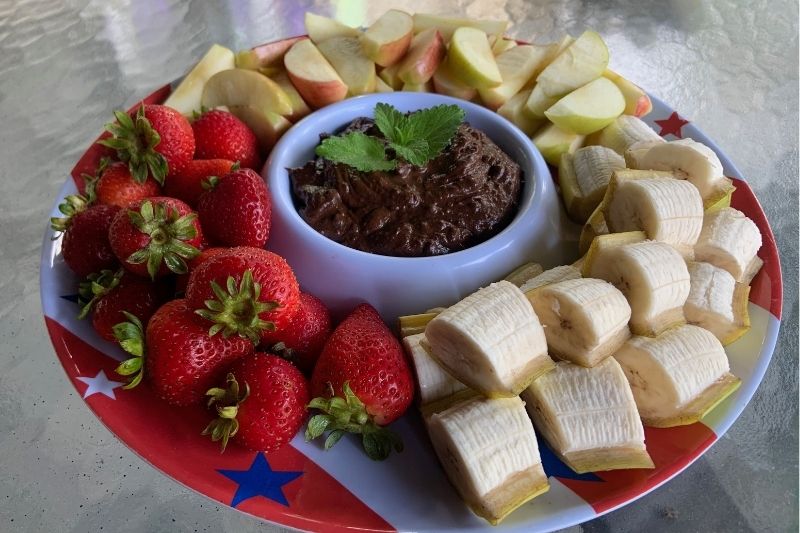We believe that simple and joyful changes made by many individuals will result in positive and joyful changes for many and for the planet. Our posts are focused on topics related to how we can improve our quality of life and protect the planet. One Planet Life is dedicated to you, me, we and our living planet.
Do Something: A Note from Our Founder, Lorie Buckingham
OPL's founder, Lorie Buckingham, reflects on the global setbacks of 2025, and rallies the OPL community to be stubbornly optimistic in 2026. I am the founder of One Planet Life. I call myself a way finder —someone navigating these challenging times alongside you,...
Stay Fit Without a Gym Membership
Sure, having a gym membership can help with your fitness goals. But it’s not required! There are lots of ways you can stay fit without a gym.
Seven Wellness Strategies to Overcome the Holiday Blues
The importance of self-care during the holidays can’t be understated. Use these seven wellness strategies to navigate the holiday season.
Finding Calm Amidst Climate Change
Finding calm in the midst of our current climate change can be difficult. These helpful wellness tips can lessen your stress and anxiety.
Serve a Veggie-Forward Feast with OPL’s Holiday Recipe Roundup
Choose to celebrate sustainably this year by offering your guests a veggie-forward feast that is both flavorful and kind to the planet.
Your Dollar is Powerful. Be a Conscious Consumer.
Being a consumer is unavoidable, but you have the power to choose what kind of a consumer you want to be. Choose to be a conscious consumer.
Shop Smart and Save the Planet This Holiday Season
Shop smart this holiday season. Use One Planet Life’s Holiday Gift Guide to find gifts that align with your sustainability goals.
Reduce, Reuse, Recycle and REFILL to Benefit the Planet
Refill your containers with package-free products and reduce the amount of plastic you send to the landfill to benefit the planet.
Gen Z and the Rise of Conscious Fashion
Young people in Generation Z are transforming the fashion narrative and extolling the unique benefits of conscious fashion.
Fast Fashion: The Environmental Nightmare We Can’t Ignore
The fast fashion industry has a complex supply chain, with many negative impacts on our environment. It’s a nightmare we simply can’t ignore.
Champion Sustainability this Season with OPL’s Smarter Shopping Challenge
One Planet Life’s September challenge focuses on helping you build smart shopping habits by being a more conscious consumer.
Discover the Beauty of America’s National Parks
For most of us, visiting a national park isn’t easy. But with OPL’s virtual park tour, America’s natural beauty is just a click away.
Packing It Out: Learning More About the “Leave No Trace” Principles
Leave No Trace brings attention to the conservation, preservation, and protection of our parks and ecosystems.
How Healthy Is Your State? Data Insights on Five Climate Issues
Planet Earth is warming at an alarming rate. Discover how your state ranks nationally on five key climate detractors with our data insights.
Rising Heat Index, Rising Health Risks: How Climate Change is Affecting More than Just Our Environment
Heat indexes are climbing and heat waves occur more frequently. Global warming is getting serious, and unfortunately, our health is at risk.
How Microplastics Devastate Health, Disrupt Ecosystems, and Threaten Biodiversity
Learn more about our plastic predicament and how harmful microplastics have become pervasive in the air, the water, and in the foods we eat.
Plastic Production Has Skyrocketed Since 1950. Most Ends Up In Landfills.
Plastic production has exploded since 1950 but global recycling rates have not. Discover the rise and mismanagement of the world’s plastic.
Is Plastic the New Asbestos? Understanding Plastic’s Impact on Our Environment
The dangers of asbestos are well known, but growing evidence suggests that plastic is another material silently wreaking havoc on our planet.
Join OPL’s Plastic Free July Challenge and Break Free from Plastic’s Grip
Plastic is pervasive and never decomposes. This month, join OPL’s Plastic Free July challenge and break free from your plastic dependency.
Understanding Water Quality Through Aquatic Macroinvertebrates
Aquatic macroinvertebrates signal to us the quality of our waterways. They play a large part in our freshwater ecosystem.
The Hidden Water Footprint of Everyday Items
Become a more water-conscious consumer by understanding the hidden water footprint lurking behind common household products.
The Truth About Our Environmental and Humanitarian Water Crisis
Water sustains all life, yet we take it for granted. Learn how water demands are creating an environmental and humanitarian water crisis.
Tackling the Food Emissions Crisis
One Planet Life shares Project Drawdown’s webinar on food emissions. Changing the way we handle food waste is a critical climate solution.
Learn About the Crucial Pillars of a Sustainable Food System
Regenerative farming and the support of local agriculture have emerged as crucial pillars of a more sustainable and resilient food system.
Growing Wellness: 7 Health Benefits of Gardening
Gardening provides numerous physical, mental, and emotional advantages. Here are 7 reasons you should enjoy the health benefits of gardening.
Protecting Biodiversity Around the World
Discover why protecting biodiversity and promoting climate resilience are so important. Then learn more about climate corridors near you!
Earth Overshoot Day: What It Is and Why It Matters
Earth Overshoot Day is an estimation of the day in which humans exceed their annual ecological budget. Let’s work together to #MoveTheDate.
Renewable Energy Transitions Race to Meet Increasing Demands
America’s renewable energy transition projects are straining to meet rapidly rising energy demands. Discover more about our energy landscape.
Show Our Planet You Care. Join the Love the Earth Challenge Today!
Earth Day is right around the corner! Be a warrior for change this year and join One Planet Life’s Love the Earth Challenge.
Joyful Signs of Spring in the Forest
In the northeast, mid-Atlantic spring has sprung, and telltale signs of spring are revealing themselves everywhere.
Embrace Sustainable Living with New Community Goal Challenges
Live more sustainably with the help of the One Planet Life app. Discover new Community Goal Challenges to keep you motivated all year long!
Creating Pollinator Gardens with Native Plants
Creating a pollinator garden is a great way to balance the natural biodiversity of your backyard and offer a safe haven for local wildlife.
It’s Spring! Time to Get Outside and Explore
Spring is in the air! Get outside and revel in the sights and sounds of nature stirring back to life after a long winter.
A Visit to Aldo Leopold’s Farm and Shack
Take a virtual tour of the site where famous conservationist Aldo Leopold and his family spent their weekends in Baraboo, Wisconsin.
New App Updates Track Your Impact More Effectively
We have been working hard to bring these exciting app updates to our users. Discover what’s new on the One Planet Life app today!
My Intern Experience at a Dolphin Assisted Therapy Facility in Curacao
OPL intern, Anna O’Reilly, writes about her recent intern experience at a dolphin assisted therapy center in Willemstad, Curacao.
Dolphins: Marine Bellwethers and Humanitarian Helpers
Learn more about dolphins and why we need to protect their habitat so they may live full lives in their wild, natural environment.
2024: A Year of Collective Action and Planet-Saving Impact
The OPL community’s collective action continued in 2024. Discover how we made our world more sustainable through small, meaningful actions.
Facing the Climate Crisis: Challenges and Opportunities in 2025
OPL founder Lorie Buckingham reflects on our current climate crisis and the challenges and opportunities humanity faces in the coming year.
Start 2025 Off Right with Our 15-Day Sustainability Challenge
Crafting a more mindful existence doesn’t need to be hard. Join our 15-Day Sustainability Challenge for a head start to a greener life!
Tips for Local Produce Shopping in Winter
Shopping locally for fresh produce in winter can be a challenge. Many farmers harvest root vegetables that can make a winter menu delicious.
Climate Stewardship: A Path to Hope and Action
Master Naturalist and OPL contributor, Yvonne Dwyer, shares key takeaways from her recent participation in a climate steward course.
Indoor Plants Benefit Your Health and Mood
Indoor plants aid our senses through texture, color, and beauty — enhancing our mood, health, and overall wellness.
Living Buildings Around the World
People thrive in nature, not concrete jungles. How do we balance city living with nature? By developing living buildings.
Join This Year’s Christmas Bird Count!
The Christmas Bird Count is a beautiful way for families and friends to get outside over the holidays and participate as citizen scientists.
OPL’s Favorite Sweet and Simple Holiday Desserts
Enjoy these simple, memorable, and delicious holiday dessert recipes contributed by members of the One Planet Life team.
How Wildlife Bridges Connect Natural Habitats Together
Wildlife bridges or “green” bridges are reducing the number of wildlife-related traffic incidents and providing safe pathways for animals.
Weather Ready: How OPL Members Prepare for Climate Extremes
We live in an age where climate change is reshaping the world around us. Extreme weather events are becoming more frequent, and they’re hitting closer to home. Depending on where you live, you might face wildfires, hurricanes, droughts, floods, or even severe storms....
Gear to Help You Weather Any Climate Event
Weather any climate event with this list of helpful recommended gear from the OPL team. Perfect for camping, hiking, or emergency situations!
Mindfulness and Meditation are Gifts for Yourself
Mindfulness and meditation are gifts for yourself. It goes beyond relaxation and is the path to your center of joy, peace and a clear mind.
Prioritize Self-Care with OPL’s Winter Wellness Challenge
Prioritize your self-care and make a conscious effort to be kind to yourself this holiday season. Join OPL’s Winter Wellness Challenge.
OPL’s 2024 Holiday Book Gift Guide
Gifting a book is like giving three gifts in one! Check out OPL’s 2024 Holiday Book Gift Guide, and discover books for everyone on your list.
Philanthropic Giving: A Fresh Approach to Gifting
Our holiday guide for sustainable and philanthropic giving has ideas for every person on your list. Cheers to a happy and greener planet!
Meaningful, Creative Gifting and What it Says About You
Buying gifts is a big part of our holiday traditions. Explore meaningful, creative gifting ideas that are sustainable and practical.
Shop Local and Support Your Community
Make a big impact in your community by choosing to shop small. You don't have to wait until Small Business Saturday to positively impact your community. Choosing to shop local has a wonderful effect on your community. Your dollars are powerful, and where you shop...
Create a Stunning, Eco-Friendly Holiday Tablescape with Natural Decor
Gather together this holiday season around a beautifully decorated table. Learn how to make your tablescape both festive and eco-friendly!
Choose Kindness for Yourself, Others and the Planet
Choosing kindness is the simplest thing you can do to make a difference for yourself, others, and the planet.
How to Grow Sprouting Seeds
Add a crunch to any meal by growing your own sprouting seeds! Try alfalfa, broccoli, radish, sunflower, and other seeds today.
Plant Garlic Now for a Flavorful Harvest Next Year!
Fall is the perfect time to plant garlic. It is one of the easiest vegetables to grow and you will love fresh garlic from your garden.
Discover the Ecological Wonders of Leaf Litter
Your yard might look unkempt and messy, but leaf litter is full of life! Discover how leaves create a natural habitat for pollinating insects.
Prepare for a Sustainable Holiday Season with OPL’s Gathering and Gifting Challenge
Join OPL’s Gathering and Gifting Challenge to reduce your waste, create greener eating habits, and gift and celebrate sustainably.
Slay the Energy Vampires in Your Home and Save
Your home consumes lots of energy, but you can make an impact in a few easy steps. Slay your energy vampires and save.
Winged Wonders: Unveiling the Secrets of Bats
Learn important facts that make bats the rockstars of Halloween. Dive into the mysteries of these nocturnal wonders!
Nurturing Nature in the City: The Environmental Impact of Urban Green Spaces
Urban green spaces have emerged as crucial agents of positive change and are reshaping the environmental narrative of bustling cities.
The Remarkable Benefits of Urban Green Spaces
Urban green spaces are beacons of hope and vitality for city dwellers amidst the skyscrapers and bustling streets.
Our Dark Skies are Brighter Than Ever and That’s a Problem
Studies show how vital dark skies are to the health of our ecology. Artificial light pollution and energy waste adversely affect our health.
Dig into the Marvels and Mysteries of Moss
Moss is the simplest and most primitive of all plants, yet their importance can’t be understated. Discover the wonders and mysteries of moss.
A Bioblitz is a Great Way to Learn What is Living Near You
Want to know more about plants, insects, animals, birds, fungi, or trees near you? A bioblitz is fun way to identify life around you.
OPL Insight: How Protected is Your State?
Explore protected lands and tree cover for each state and understand how the 30×30 initiative can help mitigate the effects of climate change.
Forest Snags: Dead or Full of Life?
Forest snags are an essential part of our ecosystem. These wildlife trees make up to 10-20 percent of forest canopies.
Road Trip to Meet America’s Longest Living Trees
Take a virtual roadtrip to meet some of the longest living trees in America. We hope it inspires you to visit our country’s national parks!
Exploring Sustainability and Nature-Based Learning at Riverfield Country Day School
At Riverfield Country Day School in Tulsa, Oklahoma, students are immersed in a learning environment beyond traditional classroom walls.
What to Pack: How to Prepare for a Great Outdoor Adventure
The key to making any outdoor adventure enjoyable is to be prepared before you head outside. Pack these 10 essential items in your daypack.
What to Wear: How to Prepare For a Great Outdoor Adventure
Your winter outdoor adventure requires the right clothing, sturdy boots, a daypack, and a positive attitude. Be prepared. Know what to wear!
Embrace the Outdoors with OPL’s October Challenge
It’s a beautiful day to embrace the outdoors and experience the majesty of our natural world. Join us in this month’s challenge!
Just Like New: How I Saved a Worn-Out Shirt From the Landfill
But what if instead of discarding worn clothing, we gave them a second life? Here’s how I made a well-loved shirt just like new.
Going Green: A Sustainable Wedding Celebration
Discover how an environmentally conscientious couple planned a sustainable wedding without sacrificing their bohemian fairy garden theme.
How to Upcycle Gently Used Outdoor Recreational Gear
An outdoor enthusiast’s tips for how to upcycle and acquire gently used clothing and recreational gear and enjoy big savings.
Fantastic Finds at My Local Outdoor Consignment Sale
You can find great deals at a consignment sale. They allow me to get the gear I need at a fraction of the cost with zero carbon impact!
Break the Cycle of Fast Fashion and Change the World
Fast fashion profits big brands while exploiting people and places, driving consumerism, and harming our planet. Let’s break the cycle!
An Insider’s Guide to Exploring Zion National Park
Our Naturalist Yvonne Dwyer shares tips for getting the most out of your visit to Zion National Park in Utah.
An Insider’s Guide to Exploring Mesa Verde National Park
The cliff palaces, tools, pottery, family life, and topography of Mesa Verde National Park will spark your curiosity to discover more.
An Insider’s Guide to Exploring Arches National Park
Arches National Park is breathtaking, featuring sculptured red rock sceneries created from 100 million years of erosion and weathering.
An Insider’s Guide to North Cascades National Park
If you love vast native wilderness, turquoise water, and majestic trees, add North Cascades National Park to the top of your bucket list.
An Insider’s Guide to Grand Canyon National Park
The Grand Canyon is one of the most inspiring landscapes in the US. It overwhelms our senses with its geologic beauty.
Overcome the Summer Slump and Rebuild Eco-Friendly Habits
Make your back to school a joyful green with OPL’s Eco-Friendly Tips for how students and parents can embrace sustainability this fall.
Movement of the Monarch: The Importance of Pollinators
Pollinators are essential to local ecosystems. Follow the monarch butterflies as they migrate along their natural pollination route.
Essential Sun Protection Tips for Every Season
Sun protection is important! Reduce your risk of sun damage by wearing protective clothing, SPF 30+ sunscreen, and sun-smart accessories.
Extreme Heat: OPL’s Founder Shares Insights on Michael Mann’s Global Warming Predictions
OPL’s founder shares her reflections about extreme heat and climate change after reading Michael Mann’s recent book, Our Fragile Moment.
Hiking with Kids: Tips for a Successful Outdoor Adventure
Hiking can be such a fun and rewarding experience. Bringing kids along may slow your pace but it’s a great adventure together as a family.
Be Cool, Be Sustainable with OPL’s Beat the Heat Challenge
It’s August, and it’s HOT. Learn more about OPL’s Beat the Heat Challenge and discover how you can stay cool and sustainable all month long.
The Upcycling Revolution Teaches Us to Revive Trash into Treasure
More than recycling, upcycling has become a creative way to breathe new life into discarded materials and unwanted items to make them useful.
America’s Recycling Programs are in Disarray, You Can Help
It’s no secret that the state of recycling in America needs to be improved. Individuals have huge opportunity to make a difference.
Reduce Your Plastic Usage – The Time is Now!
Reducing your plastic usage helps to mitigate climate change, loss of nature, and prevent pollution. The time is now for plastic to be gone.
My Journey to Reduce My Carbon Footprint Started With Trash
The journey to reducing my carbon footprint has evolved over several years. It began by reducing the amount of rubbish in our trash.
Municipal Water Systems’ Solutions to the Plastic Pollution Crisis
Rachel Stahlman, president of the Watershed Alliance of York, shares insights into pollution challenges facing municipal water systems.
Breakthrough Technologies Give Hope for Cleaner Oceans and Waterways
Plastic pollution has reached alarming levels, posing a significant threat to our well-being. Solutions for cleaner oceans offer hope.
The Florida Everglades Great Carbon Sink is in Trouble
Carbon sinks are naturally occurring or artificially created reservoirs that absorb more carbon-based compounds than they release.
Let’s Love, Protect, and Share Our Water
We are utterly dependent on water. It is time to remember our love for water – to care for it, and share it. We give you ways to get started.
Our Wonderful Wetlands
Our wonderful wetlands are vital to the environmental balance between humans and nature. We must sustain and improve their ecological value.
Our Newsletter

